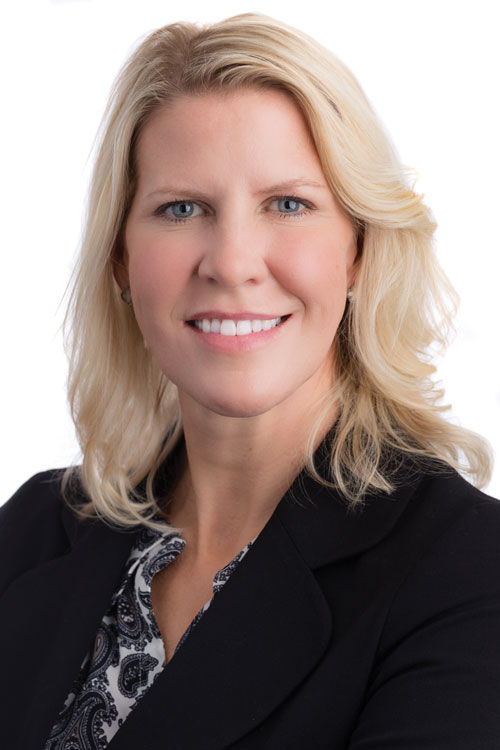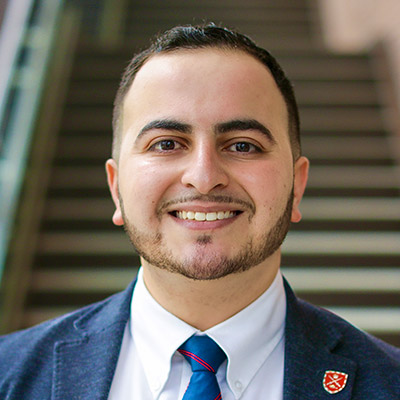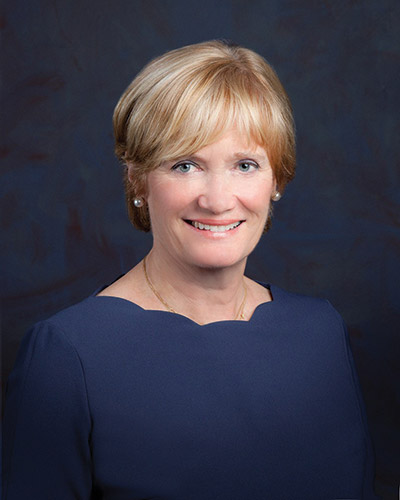Gender-Based and
Sexual Violence
You’re not alone.
We are here to support you.
All members of Huron’s community have the right to work and study in an environment that is free from any form of sexual violence.
Sexual violence of any kind is unacceptable and will not be tolerated. Huron University College works to ensure individuals feel safe and enable them to have the resources available to them, including the ability to make a report in good faith about sexual violence that they have experienced or witnessed.
COMMUNITY
SAFETY OFFICE
Sarah Read,
Director Community Safety Office
sread9@huron.uwo.ca
519-438-7224 ext 854
Location:
Wellness Centre, Office #6
REPORT AN INCIDENT
OF SEXUAL VIOLENCE
Please use this form only if you have experienced an incident of sexual violence and you wish to report it to Huron. A report initiates a formal process under Huron’s Policy on Sexual Violence (PDF).
24/7
CAMPUS SECURITY
hursec@huron.uwo.ca
519-521-9407
Extension – 555
Available on any wall phone
Location:
Security Office
(previously the Information Center)
01
Get Help
If you have been impacted by sexual violence, it’s never your fault. We believe you.
If you’re not sure what to do or where to turn, a good place to start is talking with Huron’s Director of Community Safety, or our Wellness team. Both offices are located in Huron’s Wellness Centre, and you can talk with our trained staff about what happened to you. We are here to listen and, when you’re ready, we can give you information about what your options are, how you can find more support, and what next steps you might consider taking. We support students who have experienced gender-based and sexual violence on or off campus, or before you came to Huron.
There is no right way to feel.
It is normal for your mood and energy to vary considerably. Try to keep your environment compassionate, supportive and low-pressure.
It may take time.
Your healing process may take longer than you expect. Everyone’s journey is different. Your story is your own to share, on your own terms. You can choose not to tell anyone, to tell only a few people, or to tell people in stages. It is up to you if, when, and how you want to share.
You are not alone. Reach out.
Don’t forget that you can have someone you trust with you before, during and after any meetings or appointments.
Resources
ANOVA
24/7 support line for individuals who have experienced sexual assault and domestic violence: 519.642.3000 or 1.800.265.1576
Sexual Assault and Domestic Violence Treatment Centre at St. Joseph’s Hospital (SADVTC)
- After Hours: 519.646.6100, press 0 and ask switchboard to page on-call, specialized nurse
- SADVTC can provide medical and emotional support at hospital as well as follow up from a social worker
Huron Wellness Centre
- Huron students are warmly welcomed to visit our Wellness Centre to seek support in achieving their best mental and emotional health.
- Our Wellness staff are here to provide non-judgmental support, counselling and resources that may be effective in alleviating and addressing challenges.
- Huron’s Wellness Centre is located on the pathway between Southwest Residence and Brough House Residence.
- To book an appointment, call 519.438.7224 ext 866, ext. 716 – or email huronwellness@huron.uwo.ca
Contact the Director, Community Safety
Contact the Director, Community Safety at Huron University to confidentially discuss options available to survivors of sexual assault, co-create safety plans, and receive accommodations: 519.438.7224 ext 854; safety@huron.uwo.ca. Located in the Wellness Centre, between Southwest Residence and Brough House Residence.
London Police Service
601 Dundas Street, London; 519.661.5670
Western’s Gender-based Violence & Survivor Support Case Manager
Western University: 519.551.3568 (non-emergency) or support@uwo.ca, Monday-Friday during business hours
02
GIVE Help
Anyone at Huron can receive a disclosure of Gender-Based and Sexual Violence. In the event that a survivor discloses their experience(s) to you, please know that you are in a special position to act as a resource. Provide them with a compassionate level of support that refers them to information about options and resources.
A supportive response involves:
- Listening without judgment; and accepting the disclosure as true
- Communicating that gender-based/sexual violence is never the responsibility or fault of the survivor;
- Helping the individual identify and/or access available on- or off-campus services, including emergency medical care and counselling;
- Respecting the individual’s right to choose the services they feel are most appropriate and to decide whether or not to report their experience;
- Recognizing that disclosing can be traumatic and an individual’s ability to recall the events may be limited;
- Respecting the individual’s choices as to what and how much they disclose about their experiences; and
- Making every effort to respect confidentiality and anonymity
03
CLEAR BROWSING HISTORY
Learn how to clear your browsing history if you’re worried someone will see that you visited any of these websites.
04
Reporting Options

FAQs about the Policy and Reporting Options
FAQs about the Policy and Reporting Options
Gender-based / sexual violence and consent
What is gender-based / sexual violence? How is it different from sexual harassment and domestic violence?
What is gender-based / sexual violence? How is it different from sexual harassment and domestic violence?
Huron partners with ANOVA to provide education around sexual violence. Anova states “Sexual violence is any form of sexualized behavior that occurs without consent. This includes sexual assault (unwanted sexual touching), as well as non-physical violence such as street harassment (ie. “cat-calling”), stalking, non-consensual sharing of sexual images (ie. “revenge porn”), and sexual harassment
Domestic violence is abuse, control, and/or violence that occurs in the context of a family or partnership. Abuse is any act used intentionally to harm, injure, control, coerce, threaten, intimidate or create fear for safety in another person. It can happen between intimate partners, between siblings, between parents and children, and/or between adult children and elderly parents.
Sexual harassment refers to unwelcome comments and/or actions directed at someone (or about someone) because of their sex, sexual orientation, gender identity, or gender expression. Jokes about someone’s appearance, participating in rumours about someone’s sexuality or perceived sexual skill, unwanted solicitations or sexual advances, demanding hugs or invading personal space, and derogatory language can all be forms of sexual harassment.”
What is Consent?
What is Consent?
Consent is the voluntary agreement to engage in the sexual activity in question. Consent:
- Is never assumed or implied
- Is not silence or the absence of “no”
- Cannot be given if the victim is impaired by alcohol or drugs, or is unconscious
- Can never be obtained through threats or coercion
- Can be revoked at any time
- Cannot be obtained if the perpetrator abuses a position of trust, power or authority.
Consenting to one kind or instance of sexual activity does not mean that consent is given to any other sexual activity or instance. No one consents to being sexually assaulted.
What if I was intoxicated or under the influence of drugs at the time of the incident?
What if I was intoxicated or under the influence of drugs at the time of the incident?
You are not to blame. Intoxication and drug use are not an invitation for sexual activity. Without your consent, and capacity to give consent, any sexual activity is sexual violence.
What if the gender-based or sexual violence behaviour occurred on-line?
What if the gender-based or sexual violence behaviour occurred on-line?
Huron’s sexual violence policy can be applied to sexual violence acts that occur online or using electronic media.
Huron’s Gender-Based / Sexual Violence Policy and Procedure
Who is covered by Huron’s policy against Sexual Violence?
Who is covered by Huron’s policy against Sexual Violence?
The policy applies to all members of the Huron community, including staff, students, faculty, volunteers, contractors, visitors/guests and members of the Executive Board. As long as the Respondent (perpetrator) is an active, registered/enrolled member of the Huron Community, the policy applies, regardless of whether the Complainant/Survivor is a member of the Huron Community.
Is Huron’s Gender-Based / Sexual Violence policy the same as Western’s?
Is Huron’s Gender-Based / Sexual Violence policy the same as Western’s?
Huron recognizes the close link that our community has with Western, and while our policies are closely aligned, Huron’s sexual violence policy is its own document created to meet the needs of our Huron community.
Where can I find Huron’s full Gender-Based / Sexual Violence policy?
Where can I find Huron’s full Gender-Based / Sexual Violence policy?
The full policy document PDF can be found here:
https://huronu.ca/app/../sites/default/files/Gender-Based-Sexual-Violence-Policy-Sept-22.pdf
You can also find a link to it, as well as other information, on the Community Safety Page of Huron’s website:
https://huronu.ca/community-safety/
You can also locate the policy, as well as other Huron policies here:
What do the terms “Survivor”, “Complainant” , “Respondent” and “Designated authority” mean?
What do the terms “Survivor”, “Complainant” , “Respondent” and “Designated authority” mean?
Huron recognizes the close link that our community has with Western, and while our policies are closely
A survivor is any person who has experienced sexual violence, including individuals who self-identify as a victim or victim/survivor.
A complainant is an individual who has been the target of violent behaviour and files a complaint of sexual violence with the University
A respondent/perpetrator is an individual who is alleged to have committed an act of sexual violence in a report made by a survivor.
A designated authority is the senior administrator at Huron who will receive the formal complaint. If the complaint is substantiated, he/she will decide which sanction or penalty will be imposed.
Getting help if you have experienced gender-based / sexual violence
Where can I get help?
Where can I get help?
You can contact Sarah Read, Huron’s Director of Community Safety. Sarah will offer you support regardless of whether you experienced gender-based violence on or off campus. Sarah can offer a variety of services, based on what information you want and need, including accommodation requests, referrals to internal and external counselling, safety planning and reporting options. The decision of next steps will always be yours and you will never be pressured one way or the other.
Sarah’s office is in Huron’s Wellness Centre and you can reach her at the confidential email safety@huron.uwo.ca or by calling 519-438-7224 ext 854.
You can also contact one of our Wellness team members, counsellors Heidi or Sonja, to talk, seek counselling, advice, accommodations and referrals to external partners.
Heidi and Sonja are located in Huron’s Wellness Centre and you can connect with them by emailing huronwellness@huron.uwo.ca
Will it be confidential if I speak to someone?
Will it be confidential if I speak to someone?
We know that confidentiality is particularly important to those who have disclosed Gender-Based and Sexual Violence. All Huron staff and/or faculty will protect the confidentiality of all those involved, to the extent possible. There are requirements under law that may obligate a staff or service provider to disclose your information, so it is best to discuss the limitations of confidentiality prior to disclosure, if possible.
Do I have to share the name of the perpetrator / other person(s) if I just want to talk to someone?
Do I have to share the name of the perpetrator / other person(s) if I just want to talk to someone?
No, you are never obligated to share more information then you are comfortable providing, and Huron will provide you with support regardless of how you want to proceed. However, given that your safety and the safety of Huron’s community is of utmost importance to us, a service provider may ask you whether you would be willing to share that information, if it is felt that you or someone else is in jeopardy.
What if I’m not sure if what happened was really an act of gender-based or sexual violence?
What if I’m not sure if what happened was really an act of gender-based or sexual violence?
If there is any question regarding the event, speaking to a professional is a good idea. This could be by calling the Sexual Assault and Domestic Violence Treatment Program, visiting a physician or counsellor, or talking with Huron’s Wellness team, Community Safety Office or Western’s Special Constable Service.
Having a conversation with a friend or relative that you are comfortable with may help as well. Follow your gut, and if you think it was sexual violence, consider speaking with a professional.
Where can I receive medical treatment?
Where can I receive medical treatment?
Emergency, as well as non-emergency, care related to sexual violence may be received at:
Regional Sexual Assault and Domestic Violence Treatment Program. Go to St. Joseph’s Health Care London (Urgent Care), 268 Grosvenor Street, London, ON (hours are Monday to Friday, 8 a.m. to 4 p.m.) or call 519-646-6100 ext. 64224. After hours call 519 646-6100, press “0” and ask switchboard to page the nurse-on-call for sexual assault and domestic violence.
Non-emergency care is also available for students at Western’s Student Health Care (UCC 11) or with your own family doctor.
What if I want the morning-after pill?
What if I want the morning-after pill?
The morning-after pill, also known as Plan B, can be obtained in three ways:
- If you are seen at the Regional Sexual Assault and Domestic Violence Treatment Program, they can provide the morning-after pill to you.
- Any pharmacy, including the on-campus pharmacies, can provide the morning-after pill over the counter after a discussion with the pharmacist.
- You can book an appointment to see a doctor at Western’s Student Health Care or with your own family doctor to discuss options and to get a prescription from that doctor. The prescription’s cost may be covered by your drug plan and that is why a prescription may be beneficial to obtain.
What if I am concerned about sexually transmitted infections/diseases (STI/STD’s)?
What if I am concerned about sexually transmitted infections/diseases (STI/STD’s)?
If you are seen at the Regional Sexual Assault and Domestic Violence Treatment Centre, they will conduct this testing.
Also, Western’s Student Health Care or your family doctor can provide the full range of STI testing and counselling. After a discussion with a doctor, the tests that could be included are HIV, chlamydia, gonorrhea, hepatitis and VDRL (syphilis). If there is any reason why HIV contraction is a concern, medications need to be started within 72 hours of the sexual assault. Some testing needs to be repeated several months after the assault, so future appointments for further testing should be booked as well.
What if I need to take time off school and / or need to defer a text / exam / assignment because of what happened? Who should I talk to?
What if I need to take time off school and / or need to defer a text / exam / assignment because of what happened? Who should I talk to?
Following a disclosure of gender-based/sexual violence, Huron will support you wherever possible. You are encouraged to contact Sarah Read, the Director of Community Safety at the confidential email safety@huron.uwo.ca or 519-438-7224 x854 who will act as a liaison to support accommodations (academic, residence and/or employment).
Note that there may be limitations to the availability of accommodations based on the individual circumstances of each case. Sarah will provide information and details as to what is possible.
Reporting gender-based / sexual violence
Do I have to file a report to receive help or support from Huron?
Do I have to file a report to receive help or support from Huron?
Absolutely not. A survivor is not required to report an incident of, or make a complaint about, sexual violence, in order to obtain the supports, services and accommodation available at Huron.
When would the London Police Service (LPS) become involved? How do they work with Western’s Special Constable Service (WSCS)?
When would the London Police Service (LPS) become involved? How do they work with Western’s Special Constable Service (WSCS)?
Western’s Special Constable Service (WSCS) is obligated to notify London Police Service (LPS) of sexual assault incidents. LPS investigates incidents of sexual assault unless the victim/survivor indicates that they do not want them involved.
LPS will coordinate with WSCS when conducting their investigations to help ensure the safety of the victim/survivor and witnesses.
In Ontario, police are required by law to investigate and potentially lay charges in cases of domestic violence. Prior to speaking with police you may wish to schedule a meeting with the Director of Community Safety to understand the differences in reporting sexual assault and domestic violence, or if you need help reporting – you decide if you want make a report to the police.
What are my options for filing a complaint of gender-based or sexual violence?
What are my options for filing a complaint of gender-based or sexual violence?
You can report an incident of gender-based or sexual violence to the police (though Western’s Special Constable Service or the London Police Service). You can seek assistance in reporting or get information about the process from Sarah Read, Huron’s Director of Community Safety. You can reach her at her confidential email safety@huron.uwo.ca or by calling 519-438-7224 ext 854
You can also report an incident of gender-based or sexual violence to the University. Filing a report triggers a formal procedure which includes an investigation.
How do I report an incident of gender-based or sexual violence to Huron?
How do I report an incident of gender-based or sexual violence to Huron?
If you are filing an official complaint with the University, you need to provide information such as the date of the incident, names of the people involved, names of witnesses, etc. This information can be submitted in four ways:
- If the incident involves another student, you need to submit a complaint in writing to Jennifer Flynn Clarke, the Associate Vice President of Students (AVP Students) at her confidential email jflynncl@huron.uwo.ca
If the incident involves a staff or faculty member, you need to submit a complaint in writing to Adri Britz, Director, Human Resources. She can be reached at the confidential email adri.britz@huron.uwo.ca - You can contact and advise Sarah Read, the Director of Community Safety to file a formal complaint on your behalf. She will then make arrangements to take a formal statement from you and provide you with information about the process.
- If you have reported an incident of gender-based or sexual violence to the police, you can request a copy of your formal statement and submit it to the Director, Human Resources, AVP Students, or the Director of Community Safety
- You can submit a complaint online here, and the Director, Community Safety will follow up with you.
Please note that it may impact Huron’s ability to conduct an investigation if you remain anonymous when filing a report.
What happens after I make a report?
What happens after I make a report?
Once you file of a formal complaint, Huron will appoint a qualified, professionally trained, internal or external investigator(s) to investigate the complaint.
A copy of the Formal Complaint will be provided to the Respondent. The Respondent will be allowed to respond to the complaint, in person with the investigator where a statement will be taken and a copy of that response will be provided to you.
A Complainant has the right to withdraw from the investigation process at any time, but Huron may still be obligated to continue the investigation even in the absence of the Complainant.
How will the university decide whether a complaint of sexual violence is investigated?
How will the university decide whether a complaint of sexual violence is investigated?
Huron will investigate all formal complaints.
How will Huron protect me from retaliation or threat of retaliation for reporting?
How will Huron protect me from retaliation or threat of retaliation for reporting?
All employees and students have a right to be free of retaliation or threat of retaliation as a result of being involved in a complaint of gender-based/sexual violence. Retaliation will be deemed to be harassment and dealt with in accordance with Huron’s Harassment, Sexual Harassment & Discrimination Prevention Policy.
Can my personal information be kept confidential if I file a report (not a disclosure) with Huron? Can I submit an anonymous report?
Can my personal information be kept confidential if I file a report (not a disclosure) with Huron? Can I submit an anonymous report?
When you file a complaint with Huron, formal procedures are triggered, and confidentiality can no longer be maintained. Your personal information will be shared with the respondent to ensure procedural fairness.
What if the incident happened off campus, but the perpetrator / other person is another student / staff / faculty member of Huron?
What if the incident happened off campus, but the perpetrator / other person is another student / staff / faculty member of Huron?
Huron’s gender-based and sexual violence policy applies to any incident where the respondent is a student/staff/faculty member of Huron, regardless of whether the incident happened on or off campus.
What if the perpetrator / other person is a student / staff / faculty of Western, Brescia or Kings?
What if the perpetrator / other person is a student / staff / faculty of Western, Brescia or Kings?
The Director, Community Safety at Huron can assist you in providing information and options open to you if the perpetrator is not part of the Huron community.
What are interim measures and when can they be applied?
What are interim measures and when can they be applied?
Interim measures are steps put in place to ensure the safety and well-being of a survivor and other members of Huron’s community. Interim measures may be imposed immediately upon receipt of the complaint, or at any time during the investigation process.
Interim measures may include moving the respondent, issuing a temporary suspension, trespassing the respondent, etc. The specific Interim measures implemented will be dependent on the particular safety issues inherent in each complaint.
Can I withdraw my report?
Can I withdraw my report?
You have the right to withdraw from the investigation at any time, but Huron may still be obligated to continue the investigation even in the absence of your participation.
Investigations of gender-based / sexual violence
Can I choose not to request an investigation? Will I have to participate in the investigation?
Can I choose not to request an investigation? Will I have to participate in the investigation?
You can choose not to file a formal complaint. If an investigation does take place, you may choose not to participate, or withdraw your participation at any point.
Who is responsible for investigating reports?
Who is responsible for investigating reports?
Huron will appoint a qualified, professionally trained, internal or external investigator(s) to investigate the complaint.
How will I know what is happening with the investigative process?
How will I know what is happening with the investigative process?
The investigator will provide you with information pertaining to the status of the investigation. As well, the Wellness Team at Huron can be your support during the process and provide you with information.
Why is the respondent entitled to receive a copy of the report?
Why is the respondent entitled to receive a copy of the report?
As a matter of procedural fairness, the respondent receives a copy of the report so that they can know the nature of the report against them and provide a meaningful response. The respondent then provides a written response that is shared with the survivor.
What are the possible outcomes of an investigation?
What are the possible outcomes of an investigation?
If, after an investigation, the investigator(s) finds that on a balance of probabilities that gender-based or sexual violence occurred, the University designate: the Director, Human Resources (involving a staff or faculty member) or the AVP, Students (involving two students), will determine what corrective action is to be taken, if any.
Sanctions or actions available to the designated authority range from a formal letter of reprimand to expulsion from the university.
What will happen when the investigation ends?
What will happen when the investigation ends?
The investigator will provide a report to a University designate: the Director, Human Resources (involving a staff or faculty member) or the AVP, Students (involving two students). That individual will be responsible for making a decision, based on the balance of probabilities, whether sexual misconduct did or did not occur. Based on the outcome of that decision, the designate will determine the appropriate sanctions, as applicable.
The designate will provide a written summary of the outcome of the investigation and their decision to the survivor and alleged perpetrator. Because Provincial legislated privacy laws cover universities and employment, the extent of what may be communicated to those involved in any complaint will be balanced against the need to comply with the privacy rights of those involved.
Safety
What if the perpetrator lives in my residence?
What if the perpetrator lives in my residence?
At any point, you can talk to your Don, Head Don or either of Huron’s Residence Life Managers to report what has happened. They will come to you, listen, and can give you your options about seeking medical treatment at the Regional Sexual Assault and Domestic Violence Treatment Program and/or counselling at our Wellness Centre. They will also encourage you to speak with the Director of Community Safety to talk about all of your reporting options going forward.
If the perpetrator is deemed a safety risk to you or other residents, Interim measures may be put in place that could include a mandatory move to a different residence building, a termination of their residence contract, and/or a Notice of Trespass to Huron’s residences.
What if the perpetrator is in one of my classes?
What if the perpetrator is in one of my classes?
If the perpetrator is in one of your classes, Interim measures can be put in place in support of your safety on a temporary basis, pending the outcome of an investigation. Arrangements may include changing classes, working from home, extensions, etc. More formal and on-going actions may be undertaken after an investigation, including the perpetrator being permanently removed from the class.
You can contact the Director of Community Safety to discuss these options and the process.
What if the perpetrator is a colleague or supervisor?
What if the perpetrator is a colleague or supervisor?
Everyone at Huron has the right to work in a safe environment. Huron’s Gender-Based and Sexual Violence policy applies to staff and faculty as well as students.
What if I don’t feel safe? How can Huron help me?
What if I don’t feel safe? How can Huron help me?
You can speak with Sarah Read, Huron’s Director of Community Safety, who can create a detailed and personalized safety plan with you, and refer you to other resources both on and off campus.
Supporting someone else who has experienced gender-based / sexual violence
What if someone I know discloses an experience of sexual violence?
What if someone I know discloses an experience of sexual violence?
First, make sure that you are both safe. You are in a special position to act as a resource. Provide them with a compassionate level of support that refers them to information about options and resources. Follow the link here to learn more about helping a friend.
Prevention at Huron
What is Huron doing to prevent gender-based and sexual violence?
What is Huron doing to prevent gender-based and sexual violence?
In 2018, Huron began offering its own Wellness services, including counselling and chaplaincy services, to provide support and programming to Huron students, including those who have been subject to gender-based and sexual violence at any point in their lives.
In 2019, Huron created the Community Safety Office (CSO), which is independent of Western’s Special Constable Service, and only the 2nd of its kind in Canada. The CSO’s offers training, awareness and preventative programming related to safety issues, especially sexual and gender based violence.
In 2021, Huron revised its Gender-Based and Sexual Violence policy along with procedures for responding to incidents of sexual violence.
Huron has implemented numerous and ongoing measures to increase the physical safety of our campus.
Does Huron offer training for students, staff or faculty on gender-based and sexual violence issues?
Does Huron offer training for students, staff or faculty on gender-based and sexual violence issues?
Yes! Huron is one of the only Universities in Canada to have implemented a mandatory gender-based and sexual violence disclosure training for ALL staff, faculty and student leaders. We partner with ANOVA to bring other training to campus on issues like consent, bystander / upstander awareness and violence prevention. We offer various information, training, workshops, and sessions throughout the year. Go to the Community Safety page to see what’s coming.
05
What is Consent?
Understanding Consent
Consent means a clear, enthusiastic, ongoing and voluntary agreement to engage in sexual activities. Consent is informed, freely given and actively communicated by words, body language or other forms of communication. It is always the responsibility of the person initiating sexual activity to ensure they have consent.
It is also important to know that someone who is incapacitated (ie. by alcohol or drugs, asleep or unconscious) is not able to consent. If you are unsure how drunk or high someone is- don’t initiate sexual activity – you risk causing harm.
Understanding Coercion and Boundaries
If your relationship involves sexual activity, it is important that you and your partner(s) understand consent. Sexual boundaries are about respecting your own limitations, as well as respecting the limits of your partner(s).
When someone says ‘no’ it is important to listen and not take further action. People may communicate ‘no’ in different ways, so part of respecting someone’s boundary starts with really listening to words and also body language.
Learning about others needs and boundaries as well as your own is super important for a positive sexual experience. Recognizing your level of comfort with a sexual activity and the ability to have a conversation with your partner(s) about their boundaries is key. Pressuring someone to do what you want is coercion and can cause harm.
Undressing Consent: Mandatory GBSV Training:
06
Understanding Gender-Based and Sexual Violence
What is gender-based and sexual violence?
Any sexual act or act targeting a person’s sexuality, gender identity and/or gender expression, whether the act is physical or psychological in nature. These acts may be committed or threatened or attempted against a person without the person’s consent.
These acts include:
- Sexual assault
- Sexual harassment, unwanted sexual comments or advances
- Stalking
- Indecent exposure
- Voyeurism
- Cyber harassment
- Sexual exploitation, selling or attempting to sell someone for sex
- Acts of violence directed against an individual because of their sexuality, gender identity or gender expression, regardless of the relationship to the victim
- Acts of harassment, bullying, targeting someone’s gender identity or gender expression
Women are affected by sexual violence
Men are affected by sexual violence
Aboriginal women are 3 times more likely to be affected by sexual violence than Non-Aboriginal women
Gay, lesbian, bisexual, Trans, cisgender and other non-heterosexual people are 3 times more likely to be affected by sexual violence
Facts about gender-based and sexual violence
- Rape is about power and control, not sex
- There are no grey areas – it’s never okay
- Clothes are not a risk factor. What someone is wearing is never an indication of anything other than their fashion choice.
- Uninvited touching and/or comments are never acceptable
- Comments directed against a person’s sexuality can be a form of sexual harassment and violence and can have a negative impact on self-esteem and well-being. This is against the law!
- Just because someone buys you dinner or a drink, doesn’t mean you owe them sex in return
- Sharing nude photos of someone is an act of sexual assault
- Removing a condom without a partner’s consent is an act of sexual assault
Myths about sexual assault
Society’s understanding of sexual violence can be influenced by misconceptions and false beliefs, commonly referred to as ‘rape myths’. Separating myths from facts is critical to stopping sexual violence.
Below are some of the commonly held myths, corrected with the corresponding facts.
Myth: Sexual assault can’t happen to me or anyone I know
Fact: Sexual assault can and does happen to anyone. People of all socioeconomic and ethnic backgrounds are victims of sexual assault. Young women, Aboriginal women and women with disabilities are at greater risk of experiencing sexual assault.
Myth: Sexual assault is most often committed by stranger
Fact: Of sexual assaults where a charge was laid by police, the majority (87%) of survivors knew their assailant; most commonly as a casual acquaintance, a family member, or an intimate partner.
Myth: Sexual assault is most likely to happen outside in dark, dangerous places.
Fact: The majority of sexual assaults happen in private spaces like a residence or private home.
Myth: If a survivor doesn’t report to the police, it wasn’t sexual assault.
Fact: Just because a survivor doesn’t report the assault doesn’t mean it didn’t happen. Canada wide, fewer than one in twenty survivors reported the crime to the police in 2014.
Myth: It’s not a big deal to have sex with a someone while they are drunk, stoned or passed out.
Fact: If someone is unconscious or incapable of consenting due to the use of alcohol or drugs, they cannot legally give consent. Without consent, it is sexual assault.
Myth: If a survivor didn’t scream or fight back, it probably wasn’t sexual assault
Fact: When someone is sexually assaulted, they may become paralyzed with fear and be unable to fight back. They may be fearful that if they struggle, the perpetrator will become more violent. If they are under the influence of alcohol or drugs, they may be incapacitated or unable to resist.
Myth: If a survivor isn’t crying or visibly upset, it probably wasn’t a serious sexual assault.
Fact: Every survivor responds to the trauma of sexual assault differently. They may cry or be calm. They may be silent or very angry. A survivor’s behaviour is not an indicator of their experience. It is important not to judge a survivor by how they respond to the assault.
Myth: If a survivor does not have obvious physical injuries, like cuts or bruises, they probably were not sexually assaulted.
Fact: Lack of physical injury does not mean that a survivor wasn’t sexually assaulted. An offender may use threats, weapons, or other coercive actions that do not leave physical marks. The survivor may have been unconscious or been otherwise incapacitated.
Myth: If it really happened, the survivor would be able to easily recount all the facts in the proper order.
Fact: Shock, fear, embarrassment and distress can all impair memory. Many survivors attempt to minimize or forget the details of the assault as a way of coping with trauma. Memory loss is common when alcohol and/or drugs are involved.
Myth: People lie and make up stories about being sexually assaulted.
Fact: The number of false reports for sexual assault is very low, consistent with the number of false reports for other crimes in Canada. Sexual assault carries such a stigma that many survivors prefer not to report.
Myth: It wasn’t rape, so it wasn’t sexual violence.
Fact: Any unwanted sexual contact is considered to be sexual violence. A survivor can be severely affected by all forms of sexual violence, including unwanted fondling, rubbing, kissing, or other sexual acts. Many forms of sexual violence involve no physical contact, such as stalking or distributing intimate visual recordings. All of these acts are serious and can be damaging.
Myth: People with disabilities don’t get sexually assaulted.
Fact: Individuals with disabilities are at a high risk of experiencing sexual violence or assault. Those who live with activity limitations are over three times more likely to be victims of sexual assault than those who are able-bodied.
Myth: Married partners cannot sexually assault each other.
Fact: Sexual assault can occur in a married or other intimate partner relationship.
07
Statistics
Who are the perpetrators?
- Across Canada, 82-92 per cent of all sexual assaults are perpetrated by someone the survivor knows.
- In Quebec, in 98 per cent of reported cases, the perpetrator was male.
- 70% of sexual assault survivors were assaulted in a private residence.
Source
- Statistics Canada, 2008
- Government of Quebec, 2008 report, Statistiques sur les agressions sexuelles au Québec and the 2001 Action Plan for the setting up of governmental guidelines in the matters of sexual aggression
- Statistics Canada – no. 85-002-XIF, Catalogue, VOl. 26, No. 3 (2006).
Who are the survivors?
- 1 in 3 women, 1 in 6 men will experience sexual violence at some point in their lifetime.1
- Male survivors will most often have experienced sexual violence in childhood, rates are highest between age 3-14.2
- Women experience sexual violence throughout their lifespan, with high rates between the ages of 18-24.3
- High rates of sexual violence are also experienced by Aboriginal women, women with disabilities, lesbian, gay, bisexual and transgender people.4
Source
- Statistics Canada, 2006
- Statistics Canada, 2008
Sexual assault on campus
- Most sexual assaults happen in the first eight weeks of classes.
- 50% of sexual violence cases on campus involved alcohol or other substances.
- 15 to 25% of female students 6.1% of male students, and 24% of transgender, genderqueer and questioning students in college and university experience some form of sexual assault.
- Women who are the most vulnerable to sexual violence: women who are immigrants, visible minorities, Aboriginal and those who have a mental health condition or are disabled are 4 times at risk of sexual violence.
Source
- Bureau de coopération interuniversitaire (2016), Le harcèlement et les violences à caractère sexuel dans le milieu universitaire, Rapport du Groupe de travail sur les politiques et procédures en matière de harcèlement et de violence sexuelle, p. 24
- University of Ottawa (2015). Report of Working Group; ABBEY et al. (2001); Cited in Intervening against sexual violence, Resource Guide for Colleges and Universities in Ontario(2013); Report from the President’s Council (2013). Promoting a culture of safety, respect and consent at St. Mary’s University and beyond.
- Developing a Response to Sexual Violence: A Resource Guide for Ontario’s Colleges and Universities, Ontario Women’s Directorate, 2013
- Krebs, C.P., Lindquist, C.H., Warner, T.D., Fisher, B.S., & Martin, S.L. (2007). The Campus Sexual Assault (CSA) Study. Washington, DC: National Institute of Justice, U.S. Department of Justice
- Cantor, D., Fisher, B., et al. (2015). Report on the AAU Campus Climate Survey on Sexual Assault and Sexual Misconduct. Rockville, Maryland: The Association of American Universities.
- Bureau de coopération interuniversitaire (2016), Le harcèlement et les violences à caractère sexuel dans le milieu universitaire, Rapport du Groupe de travail sur les politiques et procédures en matière de harcèlement et de violence sexuelle, p. 25
Reporting
According to Statistics Canada’s 2004 General Social Survey (GSS):
- About one in 10 sexual assaults is reported to police.
- There were about 512,000 incidents of sexual assault, representing a rate of 1,977 incidents per 100,000 population aged 15 and older (2004 data).
- Given that most sexual assaults go unreported, police-reported sexual assault counts are notably lower, with about 24,200 sexual offences recorded by police in 2007.
- Survivor data indicate that most sexual assaults involved unwanted sexual touching (81%).
- While few sexual assault survivors filed formal reports with police, most (72%) confided in friends and many turned to family (41%) and other informal sources of support.
- Similar to survivors of other forms of violent crime, sexual assault survivors commonly experienced anger, confusion and frustration as a result of their assault. http://www.statcan.gc.ca/pub/85-002-x/2014001/article/11899-eng.htm
ON, QC:

Ipek Aydin
Recruitment Specialist
ON, MB, AB, SK:

Ben Bryan
Recruitment Specialist
ON, BC, Atlantic Canada:

Sarah Shelton
Recruitment Specialist
Hey, I’m Your Personal Admissions Advisor for Huron

Ipek Aydin
Recruitment Specialist, Türkiye

Ray Wu
International Admissions Advisor,
East Asia
Hey, I’m your personal admissions advisor for huron
WeChat/微信: RayWuCanada
+86 130.5131.8782
Book a Zoom Call with me!

Elsie-Marie Omondi
Coordinator, Recruitment Initiatives
Hey, I’m your personal admissions advisor for huron
elsie-marie.omondi@huron.uwo.ca
Book a Zoom Call with me!
Hey, I’m your personal admissions advisor for huron
 Wes Hall is the Founder and Chairman of Kingsdale Advisors, and The BlackNorth Initiative, and Canada’s first Black Dragon investor on CBC’s Dragons’ Den.
Wes Hall is the Founder and Chairman of Kingsdale Advisors, and The BlackNorth Initiative, and Canada’s first Black Dragon investor on CBC’s Dragons’ Den.
Born in rural Jamaica, Hall came to Canada at 16 escaping poverty and established himself as one of Canada’s most influential businesspeople and a leading anti-Black racism activist, committed to removing Anti-Black systemic barriers affecting millions of Black Canadians. As a member of Huron’s Board of Governors, he is looking to increase educational opportunities for Black youth.
“You can’t just look at corporate Canada to address our nation’s lack of inclusivity: our student population needs to mirror our country’s landscape equally as much,” he says. “The inclusion of underprivileged students and anti-racist education will not be a fringe part of our mission or curriculum.”
Hall’s anti-racism advocacy aligns with Huron’s vision of becoming a leader in diversity and authentic inclusion. He says he is looking forward to working with Huron to increase equitable access to education.
“When you look around the classroom and the boardroom, they both need to be diverse. Huron’s vision of inclusion is in line with everything I stand for,” he says. “I am excited about rolling up my sleeves to ensure people from all walks of life are part of this university’s prestigious ecosystem.”

Zayn Nasser
International Admissions Advisor, Africa & Europe
Hey, I’m your personal admissions advisor for huron
Email: zayn.nasser@huron.uwo.ca
Calendly: calendly.com/zaynnasser

Namra Amrohi
International Admissions Advisor,
South Asia
Hey, I’m your personal admissions advisor for huron
Book a Zoom Call with me!

Madhurima Ray
Senior Lead, Enrollment & Partner Relations
Hey, I’m your personal admissions advisor for huron
Book a Zoom Call with me!
 Leigh Allen is the AVP, Global Strategic Research, Reinsurance Group of America Inc., one of the world’s largest global life and reinsurance companies.
Leigh Allen is the AVP, Global Strategic Research, Reinsurance Group of America Inc., one of the world’s largest global life and reinsurance companies.
As a proud Huron ‘93 alumna, Allen says she was both thrilled and honoured when asked to join the Board. “I love the Leadership with Heart campaign,” she shares. “I’m excited to be part of this and will work to help Huron differentiate itself and become a destination for a Liberal Arts education in Canada.”
Allen graduated from Huron with a degree in Psychology. After having worked in consulting, at the United Nations and now the reinsurance industry, she says her Liberal Arts education has helped her in achieving these positions and opening doors.
“A Liberal Arts background gives you a bit more latitude to explore your personality and interests, strengths and dislikes – there’s a lot of opportunity,” she says. “There’s more appetite to go in different directions.”
Having also volunteered her time with the London Goodenough Association of Canada, which fosters alumni development and community relations, Allen is enthusiastic for her work on the Board of Governors. Huron, she says, is the perfect university in which to produce future leaders and change makers.
“We need to develop future generations to be broad thinkers and open to inclusivity,” she says. “I met a lot of people here who are amazing and I’ve kept those bonds and ties even when we’re in different countries.
“It’s unusual to have those relationships, a sense of community and belonging, but Huron fosters these with ease.”
 Yola Ventresca is a Managing Partner, Lerners LLP, Secretary of Huron’s Board of Governors and a Huron Class of ’02 alumni. Selected as one of Canada’s “Best Lawyers,” she is passionate about the value of Liberal Arts in helping students succeed in their careers.
Yola Ventresca is a Managing Partner, Lerners LLP, Secretary of Huron’s Board of Governors and a Huron Class of ’02 alumni. Selected as one of Canada’s “Best Lawyers,” she is passionate about the value of Liberal Arts in helping students succeed in their careers.
“Not only does it prepare you to be very successful within your profession, but this type of well-rounded programming forms you as a person,” she says. “People have lost this communal sense of what the Liberal Arts can offer, and I am going to support a change in that narrative in any way I can.”
Outside of law, Ventresca is committed to improving her community whether through volunteer work with community organizations or promoting the advancement of women in the legal profession. As a member of Huron’s Board of Governors, she says she is excited for the role she can personally play in shifting systemic inequalities and preparing students to positively influence others through empathetic and inclusive decision making.
“A Leader with Heart has an academic inclination, but they are also highly emotionally intelligent and compassionate towards people who differ from them,” she says. “As a lawyer, I see the importance of this type of leader every single day. I have a real desire to encourage people to recognize the value of that flexibility in thought and critical capacity that allows my colleagues to really engage with people from all walks of life.”

Moustafa Ezz
Director, International Recruitment
Hey, I’m your personal admissions advisor for huron
Book a Zoom Call with me!

Tram Hoang
International Admissions Advisor,
South East Asia
Hey, I’m your personal admissions advisor for huron
Book a Zoom Call with me!
 Lisa Jones Keenan is the Vice President of Sales at Xplornet Communications, the largest rural fixed wireless broadband service provider in Canada.
Lisa Jones Keenan is the Vice President of Sales at Xplornet Communications, the largest rural fixed wireless broadband service provider in Canada.
In her work, Jones Keenan is known for fostering positive company cultures and productivity. She credits transferrable skills for her ability to move into roles she may not have otherwise considered. With the ever-evolving demands of the modern economy, ensuring young people can similarly adapt within new industries is one of the reasons Jones Keenan joined Huron’s Board of Governors.
“It might be presumptuous to say that a university has a social and moral prerogative to develop well-rounded, well-intentioned people,” Jones Keenan states. “But, at Huron you don’t have to suggest it – the university’s sense of obligation to form people who will benefit humanity is built into everything Leadership does.”
Jones Keenan has kept leadership development at the forefront of her career. When talking about the immediate need for an education that develops people skills and leadership potential, she emphasizes how Huron’s unique model of teaching can transform our future economy.
“So much of what I do focuses on coaching people who are already well-established in their careers yet still need that encouragement to be compassionate and empathetic in the office,” Jones Keenan shares. “To be able to start that learning in post-secondary school will not only be such a benefit to our students, but to the business world more broadly.”
 Ranjita is Executive Chair of the Oxford Global Partnership, advising investors, businesses, family offices and entrepreneurs on sustainable, inclusive and responsible value creation. A Business Fellow at Oxford University’s Smith School, Ranjita engages with companies on pursuing value with values, and teaches a postgraduate “Essentials of ESG & DEI” course.
Ranjita is Executive Chair of the Oxford Global Partnership, advising investors, businesses, family offices and entrepreneurs on sustainable, inclusive and responsible value creation. A Business Fellow at Oxford University’s Smith School, Ranjita engages with companies on pursuing value with values, and teaches a postgraduate “Essentials of ESG & DEI” course.
Rajan’s passion and professional raison d’être is supporting and shaping imaginative organizations and businesses as exemplars of outstanding value creation, responsible governance and equitable, inclusive net-zero sustainable development (“NZSD”). Over a decade at McKinsey & Co, Rajan advised public, private and family-owned businesses in retail, telecoms, energy, mining, banking, finance on value creation. She was a founding member of McKinsey’s Climate Change Special Initiative, today its Sustainability Practice. Rajan started her career as a macroeconomist in Africa and Asia, negotiating financing for structural adjustment and sustainable development projects and laying the foundations for NZSD as a non-negotiable.
Rajan is also Founder of the Karta Initiative, a global social mobility movement, building technology, finance, and networks to bridge the divide between ‘base of pyramid’ youth and world leading universities and employers in Canada, India and the UK.
Rajan’s passion for inclusive prosperity comes from a childhood spent in rural, remote Liberia where she witnessed how accident of birth is a key driver of life outcomes. Here, she saw firsthand how the basic necessities, such as running water and electricity, are markers of privilege for many people. At the same time, Rajan says “even a tiny drop of opportunity and access to education or training” can make a tremendous difference to nurture potential and improve equality of outcomes.
“In the early days of Karta, we reached out to Canadian universities to explore their interest in international inclusion, and I was introduced to Barry. It did not take long to realize we were totally, utterly mission aligned,” she says. “What we wanted – and are both still working hard to achieve – is the removal of barriers to opportunity so a more representative group of young people can excel and thrive in world class environments.”
As a member of Huron’s Board, Rajan is excited to support Huron as a world class university, globally celebrated for its world class education and advancement of inclusive prosperity, social mobility, and equitable NZSD.
 Michael Medline is the President and CEO of Empire Company Limited and Sobeys Inc., a leading Canadian grocery retailer with grocery and ecommerce brands that reach across Canada, including Sobeys, Safeway, IGA, FreshCo, Foodland, Thrifty Foods, Farm Boy, Longo’s and Voilà.
Michael Medline is the President and CEO of Empire Company Limited and Sobeys Inc., a leading Canadian grocery retailer with grocery and ecommerce brands that reach across Canada, including Sobeys, Safeway, IGA, FreshCo, Foodland, Thrifty Foods, Farm Boy, Longo’s and Voilà.
Medline is a Huron Class of ’84 Alumnus. In 2021, Medline returned to Huron as a member of the Board of Governors in order to “contribute to a school and part of his life that means so much to him.” A passionate advocate for the Liberal Arts, Medline is focused on supporting Huron to “take the Liberal Arts experience to another level.”
As the CEO of one of Canada’s largest and longest-running food retailers, Medline understands what it takes to attain success by combining profitability and a values-based approach to business. He attributes a part of his career success to Huron, saying Liberal Arts can “springboard” students to pursue their passions across countless fields.
“I strongly believe in the value of the Liberal Arts. What you learn is how to communicate, ingest and synthesize a large amount of information,” he says. “The ability to think critically and innovatively have been integral to my business career and our students will benefit immensely from learning to adapt, embrace change and follow their passions.”
As part of Huron’s Board of Governors, Medline hopes to build on the university’s vision to develop students through a strong educational foundation, a belief in the common good and a commitment to civic engagement.
“When I went there, I absolutely loved everything about Huron,” he says. “The institution is definitely getting better every single year. It’s an amazing place to get an education.”
Beyond his business accomplishments, Medline is active in the community. He serves as a member of the Board of the SickKids Foundation and is currently Chair of the Grocery Foundation. He holds an MBA from Raymond A. Mason School of Business, William & Mary; an LL.B. from the University of Toronto, and, of course, a BA from Huron University College at Western University. Medline also proudly received an Honorary Doctor of Divinity from Huron College in 2020.
 Susan Farrow is an Assistant Professor in The Temerty Faculty of Medicine at the University of Toronto and a Founding Partner and Co-Director of The Toronto Institute of Group Studies, an organization offering certified training and education in group leadership.
Susan Farrow is an Assistant Professor in The Temerty Faculty of Medicine at the University of Toronto and a Founding Partner and Co-Director of The Toronto Institute of Group Studies, an organization offering certified training and education in group leadership.
“Our public education systems have recently been more focused on STEM subjects (science, technology, engineering, and math), which are extremely important,” says the Huron ’85 alumni. “However, we cannot lose the significant value of the humanities – the subjects that truly help educate us to communicate, better understand each other, and be caring and decent human beings.”
Farrow has been a committed clinician and educator throughout her career, with expertise in mental health and psychotherapy. High on her list of priorities as a member of the Board of Governors will be to ensure there is a real focus on the student experience, and their wellbeing, particularly with respect to mental health.
Saying she was “honoured” to be asked to join the Board, Farrow notes she was already avidly watching Huron’s commitment to creating Leaders with Heart. “This focus on developing and giving back to our communities is essential for us to make both the local and global changes that are so necessary to our world today,” she says.
Farrow remembers her Huron experience as “an amazing learning environment” and hopes to give back to Huron to express her gratitude for the incredibly positive impact Huron has had on her life.
 Frank Holmes is CEO and Chief Investment Officer of U.S. Global Investors, as well as a business commentator, philanthropist and Huron Class of ‘78 alumnus. Holmes also serves as the Executive Chairman of HIVE Blockchain Technologies, the first cryptocurrency mining company to go public in 2017.
Frank Holmes is CEO and Chief Investment Officer of U.S. Global Investors, as well as a business commentator, philanthropist and Huron Class of ‘78 alumnus. Holmes also serves as the Executive Chairman of HIVE Blockchain Technologies, the first cryptocurrency mining company to go public in 2017.
Born in Toronto, ON, Holmes says he was exposed to many different cultures and socio-economic backgrounds as a child. As a result, he says he developed a determination to leverage the capacity he built through U.S. Global Investors to invest in charities that give underserved kids a leg up.
“My goals have always been to create economic growth and a better well-being for the communities I work within,” he says. “I have always believed in giving back and, as you become more readily able to do so, you should recognize your obligation to invest in the people and spaces around you.
“That giving mentality has to go hand-in-hand with prosperity.”
In recent years, Holmes has reconnected with Huron, intrigued both by the school’s academic offerings and its commitment to civic engagement. His forward-looking vision aligns well with the university’s commitment to innovating and strengthening itself as an international leader with the same growth mindset it will foster within its students.
“Good leaders have a growth mindset,” he says. “They are not forced into learning, but instead are naturally curious and excited about taking the initiative to challenge their own preconceived notions. Huron is nurturing a new generation of students who are inspired to be transparent and accountable. Not only do they have drive, but their high achievement is underlined by a willingness to disrupt the status quo and give back.
“Who wouldn’t get excited about that?”
 Caleb Hayhoe is the Founder & Chairman of Flowerdale Group and a Huron Class of ’85 Alumnus. Flowerdale Group is a Hong Kong based family office with a global investment outlook across public markets, real estate and private investment. Hayhoe previously spent over ten years building a global sourcing business together with an exceptional team, and remains committed to entrepreneurialism and helping great ideas become sustainable companies.
Caleb Hayhoe is the Founder & Chairman of Flowerdale Group and a Huron Class of ’85 Alumnus. Flowerdale Group is a Hong Kong based family office with a global investment outlook across public markets, real estate and private investment. Hayhoe previously spent over ten years building a global sourcing business together with an exceptional team, and remains committed to entrepreneurialism and helping great ideas become sustainable companies.
Hayhoe prioritizes character above all else when looking at who and what to invest in. “I have hired hundreds of people, and what I always look for is how people do things,” Hayhoe says. “As the world becomes increasingly globalized, businesses have access to countless intelligent, qualified people. However, cultural capital is what really counts: you need to be willing to learn, work well with people from diverse backgrounds and accept ideas that starkly differ from your own.”
Hayhoe, who currently lives in London, UK, remains an avid believer in the value of a Liberal Arts education. As a member of Huron’s Board of Governors, he hopes to reaffirm and support the responsibility of educational institutions to develop graduates who have integrity and who recognize the importance of balancing financial success with social responsibility.
He looks forward to working with Huron’s Board of Governors to create a legacy at Huron that stands for the core fundamental values of treating people with dignity and respect and acting in the best interests of society.
“I am excited about the opportunity to help my alma mater become an even more representative and dynamic school that emphasizes integrity, celebrates uniqueness and never loses that sense of home it had when I attended,” he says.
 Kelly Meighen is an experienced philanthropist and volunteer. In her role as president of the T.R. Meighen Family Foundation, she has created a legacy of volunteerism and philanthropic giving in the areas of youth mental health advocacy, environmental conservation and cultural vibrancy.
Kelly Meighen is an experienced philanthropist and volunteer. In her role as president of the T.R. Meighen Family Foundation, she has created a legacy of volunteerism and philanthropic giving in the areas of youth mental health advocacy, environmental conservation and cultural vibrancy.
A Huron Class of ’71 alumnus, Meighen also holds an honorary Doctor of Divinity from Huron, conferred to her on the 156th Founder’s Day. She is putting strategic planning and governance skills to work as part of Huron’s Board of Governors to help amplify the school’s as an elite Liberal Arts institution with an inclusive environment designed to welcome people from all backgrounds.
“Huron’s advantages have always been obvious to the people who appreciate that kind of an environment,” she says. “My hope is that our Board can help broadly share the vision of the school as I cannot imagine how it would not resonate with a very broad and enthusiastic audience.”
Meighen says Huron’s emphasis on personalized support, equitable opportunity and community integration has never been so important.
“Now, we just need to ensure our message reaches everyone who recognizes the mutual benefit of intellectual pursuit and personal development,” she says. “Huron’s intention to deliver an education that prioritizes the student as an individual while fostering their role within society will no doubt benefit both learners and their communities alike.”

Alexandra Vargas
International Admissions Advisor,
Latin America & Caribbean
Hey, I’m your personal admissions advisor for huron
Book a Zoom Call with me!



The Huron Experience is truly one-of-a-kind. While most universities take in thousands of students every year, Huron selectively limits our annual incoming cohort to around 500 students each year. Even though we keep our community strategically small, we ensure they are truly representative of our global community, and we welcome exceptional young leaders from dozens of countries all over the world to our campus each year. This means, the average number of students in your classes will be 33 rather than 300, 500 or 800 like most other undergraduate programs. Plus, our student to faculty ratio is only 11:1. For us, the quality of your experience will always be more important than merely increasingly the quantity of our students.
Most undergraduate learning environments in Canada involve sitting in a lecture hall with hundreds of students, watching slideshows and memorizing textbooks. Huron classes are different. Here, professors will mentor you, not lecture you. You will engage with the course materials through interaction and debate with your peers and learn in the real-world through capstone projects, high-level research unique on the undergraduate level, as well as through real-life learning experiences throughout Canada and around the world.
Why do we do this? Because it’s all about you. At Huron, you can expect a premium undergraduate experience. Our staff and faculty will know your name, not just your student number. We will know your story and are personally invested in making sure you achieve your goals and maximize your potential.


Huron’s alumni network includes world-renowned leaders, in every industry, who you can learn from, network with and emulate. Huron alumni live in 59 countries worldwide and Lead with Heart in business, government, technology, law, international affairs and more.
With a graduating class of 400 students rather than 4,000, it’s possible to connect each and every student with an alumni mentor who will be personally invested in your success and can directly connect you to career opportunities where they work. This can make the difference between starting out in an entry level position and attaining a distinguished career.
Plus, you’ll never have to search for mentorship or a job alone. You will have one-on-one guidance from your Career Development Team who works hard solely to provide our talented students with alumni mentors working in the field or organization of your dreams.
How do Huron’s distinct advantages develop exceptional alumni? Our campus, which has the resources to nurture individual gifts, creates an environment where you’re strongly encouraged to show up and speak out. Within our interactive classrooms, there’s no sitting back and passively taking in information. Instead, you learn presentation, debate and the kind of human and leadership skills that will be most in demand in a world of ever-increasing automation and artificial intelligence.
Huron – Harvard Collaboration
Our university promises to deliver on an education that is as prestigious as it is principled, and part of that commitment involves our collaboration with the world’s highest calibre of institutions. When you choose Huron, you gain access to partnership opportunities at the world-renowned Harvard University.
Huron is the only Ontario university to supplement the development of your head and heart with a Harvard certificate
Harvard Business School Online (Harvard) provides students, in any Huron program, with a chance to gain the fundamentals of business thinking. The online Credential of Readiness (CORe) program will enable Huron students to contribute to business discussions and decision-making, whether you’re looking to advance your career, considering graduate school, or narrowing down the career path best suited to your potential.
This Ivy League badge of honour is the perfect supplement to a well-rounded Liberal Arts degree and will ensure future employers recognize your dedication to business best practices, as well as accountable leadership.
Huron – Ivey Dual Degree Programs
The Ivey Business School is Canada’s first and most prestigious business school. Complete your first two years at Huron and apply to Ivey’s Honours Business Administration (HBA) program. Students can also apply for Advanced Entry Opportunity (AEO) conditional, pre-admission status to the HBA program from secondary school
Because of our small classes, one-on-one faculty mentorship and opportunities to build leadership skills through internships, volunteering, community-based learning and travel study, Huron students can keep their grades high and build impressive extracurricular portfolios — all of which are vital to acceptance at
Paid Internships: At Huron, every single student is guaranteed a paid internship, so you will get to connect your learning with workplace experience and earn while you learn.
Entry-level work positions no longer require entry-level experience. To secure a job right after graduation, you need to show employers you’re capable of contributing significant value to your workplace.
At Huron’s Career Development Centre, you will work one-on-one with your advisor to find the right fit for your paid internship. Your personal Career Development team member will help connect you with a position that sparks your curiosity and nurtures your interests, while providing you with experiences to add to your resume. Huron has an extensive group of esteemed alumni who are leading industries, around the world, and are eager to give back by providing our students with internship and career opportunities. This, along with our strategically selective campus, means you’re not competing with hundreds of students for internship positions, so Huron students always have a better chance to secure a meaningful experience.
WealthSimple (Toronto, ON) | United Nations (Geneva, Switzerland) | London Economic Development Corporation (London, ON) | Agha Khan University Hospital Foundation (Nairobi, Kenya) | 3M Canada (London, ON) | Deloitte (Toronto, ON) | Ernst & Young (London, ON) | KPMG (Toronto, ON) | HSBC Bank (London, UK) | Clearbit (San Francisco, USA) | Government of Canada (Ottawa) | Bank of Montreal (Toronto, ON)
Our Leaders with Heart learn better and do more because we ensure our resources are never spread thin across our student body. Our strategically sized university means not only will you establish meaningful relationships with your professors, but our administration and staff are also readily available to enrich your time here. We never overcrowd our programs because we believe in providing a transformative education, not churning out degrees.
From the moment you begin your application and throughout all four years, we will work with you to ensure you’re thriving. At Huron we don’t have long lines and wait times, individualized one-on-one support from our staff and advisors is available on-demand. With one professor per 11 students and the same number of wellness, professional development and international support staff members as many large universities, you can feel confident you will always have people, who genuinely care about you, in your corner.
Who are some of the people who contribute to Huron’s Culture of Care?
Our Admissions team, who will work side-by-side with you and your family as you begin to apply, to provide personalized program recommendations and assistance with every step of the application & scholarship process
Our President who gives out his personal cell phone number, is consistently a presence at student events and responds to your emails within 48 hours, 7 days a week.
World-renowned faculty who are celebrated academics, researchers and educators and are always available to meet with you individually outside of class time
Student Advisors who will always be available 1-on-1 to help you with any of your academic, wellness and professional development needs
At Huron you will never have to go through any red tape. You will always have direct access to the support you need – unlike at large institutions where you may need to wait weeks to address your needs.


